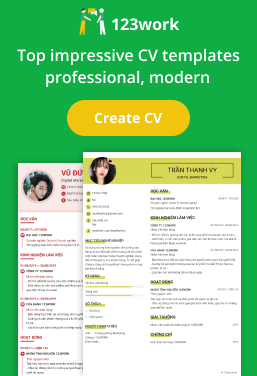Job Information
LOCATION OF (1) POSITION TO BE FILLED: DEPARTMENT OF INTELLECTUAL AND DEVELOPMENTAL DISABILITIES, MIDDLE TENNESSEE REGIONAL OFFICE DIVISION, DAVIDSON COUNTY
This position requires a criminal background check. Therefore, you may be required to provide information about your criminal history in order to be considered for this position.
Qualifications
Education and Experience: Currently registered as a Dietitian.
Necessary Special Qualifications: Licensed as a Dietitian by the State of Tennessee.
Examination Method: Education and Experience, 100%, for Preferred Service positions.
Summary
Summary: Under general supervision, is responsible for professional dietetics work of average difficulty; and performs related work as required.
Distinguishing Features: This is the working level class in the Dietitian sub-series. An employee in this class plans therapeutic diets and menus for a State facility or community and/or administers medical nutrition therapy for the prevention and treatment of diseases and health conditions. This class differs from that of Dietitian Supervisor in that an incumbent of the latter directs and supervises all clinical dietetic activities in a State facility, serves as consultant to medical and nursing staff, and supervises incumbents of this class.
Responsibilities
Making Decisions and Solving Problems:
- Assesses/analyzes data from medical records (e.g., medical diagnoses, medical/nutrition history, food intake records, anthropometric data, laboratory results), and other relevant documentation to make recommendations for maintaining or improving nutritional status.
- Assesses nutritional needs, dietary regimens, and current medical treatment to develop and implement nutrition care plans and provide nutritional counseling.
Resolving Conflicts and Negotiating with Others:
- Talks with the supervisory staff and others involved when there is a problem or dispute to gather relevant information and facilitate a resolution.
Processing Information:
- Calculates weight range, body mass index (BMI) and nutritional needs (e.g., daily caloric intake, proteins, fluids, and other needed nutrients) as necessary to establish nutrition care plans.
- Checks the caloric and nutrient content (e.g., protein, vitamins, and minerals) of foods on individual menus and/or facility menus to determine adjustments needed to meet clients' therapeutic needs.
Communicating with Supervisors, Peers, or Subordinates:
- Exchanges information relevant to the nutrition care process with those directly involved in the health maintenance of each client through interdisciplinary team meetings, group conferences, email, and written reports.
Thinking Creatively:
- Develops individualized nutrition interventions specific to clients' needs (e.g., behavioral issues, living situation, available supports and services).
- May write regular and therapeutic seasonal cycle menus within budgetary framework and taking into account clients' preferences.
- Creates therapeutic diets and develops/revises menus to meet the needs/preferences of client population.
- May confer with design, building, and equipment personnel to plan for construction and/or remodeling of food service units.
Assisting and Caring for Others:
- May work with therapists to ensure nutrition/therapy needs are met (e.g., work with speech therapists for those identified with dysphagia, work with physical therapist regarding client positioning, work with occupational therapist regarding sensory issues and adaptive equipment).
- Provides professional dietary counseling/education to clients, family members, and/or care-givers to promote better health.
- May provide nutrition education in a group setting, including basic rules of good nutrition and healthy lifestyle habits to improve quality of life.
Developing and Building Teams:
- May conduct staff meetings and facilitate team-building activities to encourage effective communications and build trust, respect, and cooperation among team members (e.g., food service employees).
Communicating with Persons Outside Organization:
- Communicates technical information to community therapists, residential/day providers, independent support coordinators/case managers and others via email, written reports, telephone calls and meetings.
Getting Information:
- Reviews client medical records (e.g., medical diagnoses, medical/nutrition history, laboratory results) and other relevant documentation to obtain information needed to assess the client's dietary/nutritional needs.
- Interviews clients, family members, conservators, and/or care-givers to collect information relevant to clients' dietary needs.
- Talks with physicians and other health care professionals to determine nutritional needs and diet restrictions of client.
- Observes selected clients during meals to assist in making the appropriate diet recommendations or to collect/record information for meal intake studies.
Organizing, Planning, and Prioritizing Work:
- Develops specific goals and plans to organize, prioritize, and accomplish work.
Inspecting Equipment, Structures, or Material:
- May conduct inspections of food service operations (e.g., checks temperature logs, rotation of food supplies, cleanliness, dry storage areas) to ensure food safety standards are met.
- Inspects meals served for conformance to prescribed diets and standards of palatability and appearance.
Training and Teaching Others:
- Develops and conducts training programs covering such topics as sanitation, safety, foodborne illnesses, food preparation, portion control, infection control, basic nutrition, therapeutic diets, or other dietetic topics.
- May provide new employee orientation to introduce department-specific programs, services, policies, and procedures.
Documenting/Recording Information:
- Charts progress notes in client medical records.
- Writes nutritional assessments and nutrition care plans.
- Prepares a variety of records and reports such as monthly reports, training records, and/or other records and reports as required.
Scheduling Work and Activities:
- May plan and coordinate supervised nutrition field experiences for dietetics students or students in other related fields of study.
Monitor Processes, Materials, or Surroundings:
- May monitor clinical nutrition and/or food service operations to ensure conformance to nutritional, safety, sanitation, and quality standards.
- Monitors client log/case load to assure continuity of care.
Selling or Influencing Others:
- Talks with internal customers about new initiatives or procedural changes to obtain their "buy-in" and cooperation.
Establishing and Maintaining Interpersonal Relationships:
- Networks with medical and nursing staff, technicians, therapists, community providers, and other health care professionals to foster and maintain cooperative working relationships.
- May network with external business partners (e.g., contracted food service companies, suppliers, other vendors) to foster and maintain cooperative working relationships.
Evaluating Information to Determine Compliance with Standards:
- Reviews own case load documentation (e.g., services requested, date requested, date completed) to make sure work is being done in compliance with hospital/institutional standards.
Updating and Using Relevant Knowledge:
- Attends training seminars, reads publications, and participates in webinars to keep up-to-date on the latest methods and technologies relevant to job duties and maintain professional dietitian credentials.
Interacting With Computers:
- Uses office productivity software, such as word processing, spreadsheet, or presentation programs, to process information and create documents.
Operating Vehicles, Mechanized Devices, or Equipment:
- May operate a state motor vehicle to travel to clients' homes or other locations as necessary to provide consultation and training.
Judging the Qualities of Things, Services, or People:
- May test new food products and equipment to determine usefulness for dietary/nutritional operations.
Competencies
Competencies:
- Customer Focus
- Decision Quality
- Ethics and Values
- Learning on the Fly
- Compassion
- Creativity
- Peer Relationships
- Motivating Others
- Perseverance
- Priority Setting
- Presentation Skills
Knowledge:
- Intermediate knowledge of the information and techniques needed for nutrition diagnoses, including anthropometric, biochemical, clinical, and dietary assessment techniques; symptoms and treatment alternatives; interpretation of laboratory values; food and medication interactions; and preventive health-care measures
- Intermediate knowledge of medical conditions impacted by diet (e.g., obesity, diabetes, hypertension, cardiovascular, gastrointestinal disorders) and other conditions (e.g., dysphagia, renal diseases, multisystem organ failure, cancer, hepatic disease) which may require specific nutrition support/therapies
- Basic knowledge of mathematics
- Intermediate knowledge of human anatomy, physiology and the microbiology of tissues, cells, functions, interdependencies, and interactions with each other and the environment
- Intermediate knowledge of food/nutrition science, including the chemical, physical, microbiological, and nutritional principles of food preparation; the functions and sources of nutrients and their relationship to a healthy lifestyle; and the chemical and physical composition of foods and their changes during processing, storage, and preparation
- Basic knowledge of the dietetics scope of practice framework (i.e., the full range of roles, responsibilities and activities dietetics practitioners are educated and authorized to perform), taking into account federal regulations; state laws; institutional policies and procedures; and individual competence, accountability, and responsibility
- Intermediate knowledge of biochemistry, including the chemical composition, structure, and properties of living organisms and of the chemical processes and transformations that they undergo, including uses of chemicals and their interactions, danger signs, production techniques, and disposal methods
- Intermediate knowledge of the standards and ethics for professional dietitians
- Basic knowledge of principles and processes for providing customer and personal services, including customer needs assessment, meeting quality standards for services, and evaluation of customer satisfaction
- Intermediate knowledge of communication and dissemination techniques and methods, including alternative ways to communicate foods and nutrition information to lay and professional audiences via written, oral, and visual media
- Intermediate knowledge of human behavior and performance; individual differences in ability, personality, and interests; learning and motivation; and behavioral and affective disorders
- Basic knowledge of administrative and clerical procedures and systems such as word processing and other productivity software, managing files and records, designing forms, and other office procedures and terminology
Skills:
- Intermediate skill in using the nutrition care process to obtain, verify and interpret data, and ultimately, to make decisions about the nature and cause of nutrition-related problems
- Intermediate skill in tailoring nutrition education to be person centered by considering the client's current lifestyle habits, social and economic situation, learning style, and education method of communication in an effort to best assist the client in making the necessary changes to his or her lifestyle to manage the nutrition related problems
- Intermediate skill in talking to others to convey information effectively
- Basic skill in understanding written sentences and paragraphs in work related documents
- Intermediate skill in communicating effectively in writing as appropriate for the needs of the audience
- Basic ability to use mathematics to solve problems
- Basic skill in giving full attention to what other people are saying, taking time to understand the points being made, asking questions as appropriate, and not interrupting at inappropriate times
- Basic skill in managing one's own time and the time of others
- Intermediate skill in teaching others how to do something
- Basic skill in using logic and reasoning to identify the strengths and weaknesses of alternative solutions, conclusions or approaches to problems
- Basic skill in monitoring/assessing performance of oneself, other individuals, or organizations to make improvements or take corrective action
- Basic skill in adjusting actions in relation to others' actions
Abilities:
- Intermediate ability to communicate information and ideas in writing so others will understand
- Intermediate ability to communicate information and ideas in speaking so others will understand
- The ability to speak clearly so others can understand
- Intermediate ability to read and understand information and ideas presented in writing
- The ability to apply general rules to specific problems to produce answers that make sense
- The ability to identify and understand the speech of another person
- The ability to remember information such as words, numbers, pictures, and procedures
- The ability to come up with unusual or clever ideas about a given topic or situation, or to develop creative ways to solve a problem
- The ability to tell when something is wrong or is likely to go wrong (does not involve solving the problem, only recognizing there is a problem)
- The ability to choose the right mathematical methods or formulas to solve a problem
- Intermediate ability to listen to and understand information and ideas presented through spoken words and sentences
- The ability to shift back and forth between two or more activities or sources of information (such as speech, sounds, touch, or other sources)
- The ability to add, subtract, multiply, or divide quickly and correctly
- The ability to concentrate on a task over a period of time without being distracted
- The ability to combine pieces of information to form general rules or conclusions (includes finding a relationship among seemingly unrelated events)
Tools & Equipment
- Personal Computer
- Fax Machine
- Printer/Scanner/Copy Machine
- Calculator
- Telephone/Cell or Smart Phone
- Skinfold Caliper
- Scales appropriate for obtaining accurate weights in a safe manner (e.g., wheelchair scale, standing scale)
- Tape Measure
- Body Mass Index (BMI) Calculator
- Food Models
- Educational tools that are age appropriate


